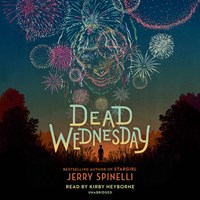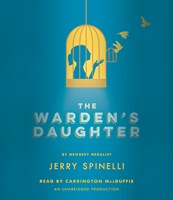Talking with Jerry Spinelli

“Maybe I’m not your ideal AudioFile subject,’’ says Newbery-winning children’s author Jerry Spinelli. “I don’t listen to many audiobooks. A little William Faulkner. A little Dylan Thomas. To me, audiobooks seem to be an in-car thing, and the stop-and-go driving I do around Willistown, Pennsylvania, doesn’t lend itself to ready listening.” Spinelli only has to commute as far as the office in his own home. Longer trips are usually devoted to plot discussions with his wife and fellow children’s author, Eileen.
Even though he hasn’t found a good place for listening to audiobooks, listening to his own voice read works-in-progress is another matter entirely. “Each morning I begin by reading aloud what I wrote the day before. I think it brings the words into a sharper—and different—focus. It’s later, when the books are published, that I don’t like to read them or hear them on tape. I’m too afraid I’ll read or hear something I want to change.’’
Spinelli, who has written 20 books about the comic perils of adolescence, did listen to a preview tape of his new Listening Library release, STARGIRL, read by John Ritter. He says, “I can’t imagine a better narrator.’’
With audiobooks CRASH, WRINGER, WHO PUT THAT HAIR IN MY TOOTHBRUSH?, and SPACE STATION SEVENTH GRADE already favorites with kids, Spinelli is eagerly awaiting the fall audiobook release of his 1991 Newbery Medal winner, MANIAC MAGEE. “It took so long to get to audio because there were contractual conflicts with the film rights,’’ Spinelli explains, citing the Nickelodeon movie starring Rip Torn and Jada Pinkett Smith, due to air in February.
Spinelli is quick to add that, although he’s not a big audiobook listener, he is nevertheless a big audiobook fan. “Whoever, ten thousand years ago, would have been sitting cross-legged and breathless around a fire, listening to the traveling Storyteller illuminate the world and dramatize the mysteries beyond the trees, that’s the person who will enjoy listening to audiobooks,” he says. “What are audiobooks but an extension of our mothers reading to us at bedtime and our teachers reading to us in the classroom? The whole tradition of literature began with storytellers, not story writers. I come closest to discovering what I’ve accomplished only when I read my own just-completed stories aloud to myself. The ear, not the eye, is the natural receiver for story.’’—Marty Crisp
OCT/NOV 01
© AudioFile 2001, Portland, Maine








